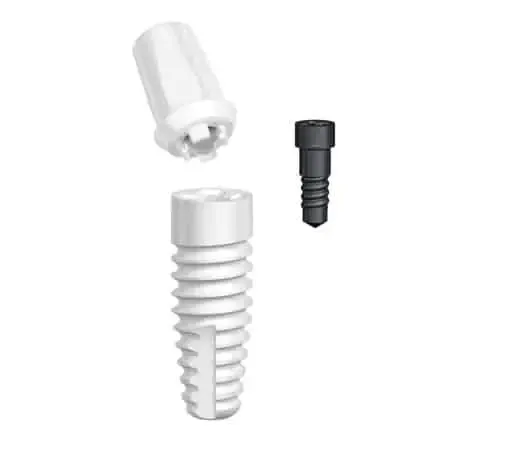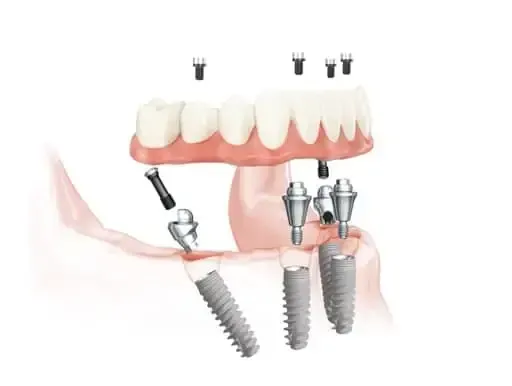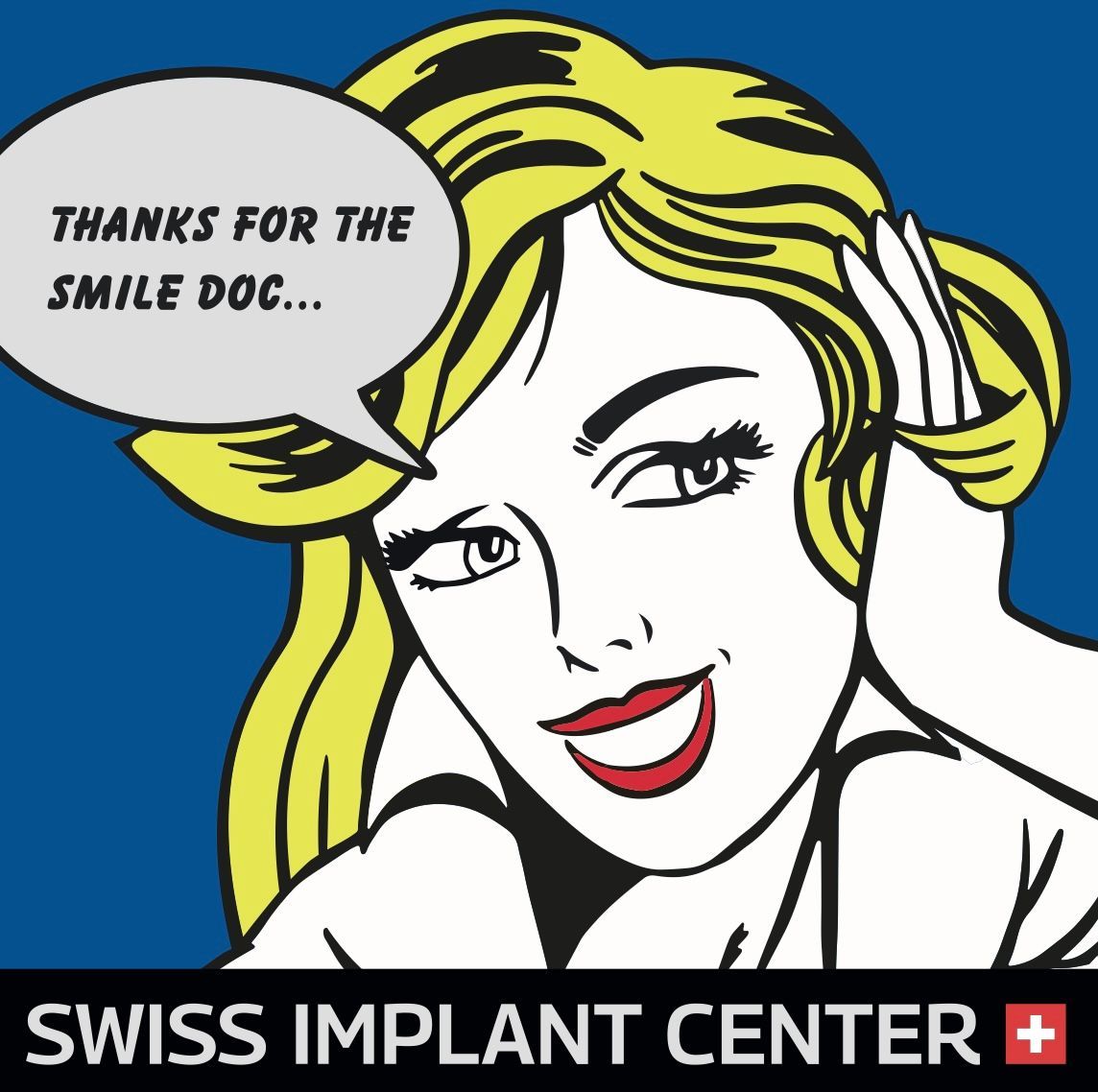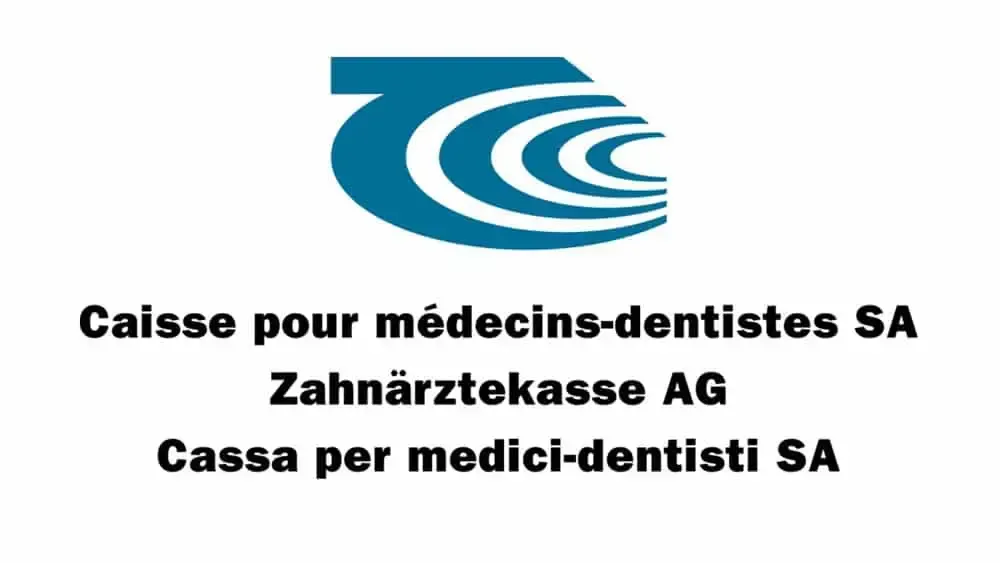Implantology
Une des grandes expertises des cabinets Swiss Implant Center est l’implantologie dentaire.
Treatments
Replacement of 1 Tooth with 1 Implant

Replacement of 4 Teeth with 4 Implants and a Bridge

Full Arch Replacement with a Denture Secured by 4 "Snap-On" Attachments or a Fixed Bar on 4 Implants

Full Arch Replacement with 2 Ceramic Bridges Fixed on Implants

Ceramic Implants
Metal-free, with optimal bone integration and long-term stability.

All-on-4
Immediate dental extraction, 4 or more implants, and a fixed prosthesis in plastic or ceramic (Zirconia) on the same day

Comprehensive Guide to Dental Implants
With over 30 years of experience and more than 15,000 implants placed, Dr. Lanners, also an international speaker and lecturer in implantology, brings his expertise to the field of dental implants.
What is a Dental Implant?
A dental implant is a modern and effective solution to replace one or more missing teeth.
Made of a small biocompatible titanium screw, the dental implant essentially replaces an extracted tooth, acting as an artificial root.
Why Choose a Dental Implant?
Dental implants are not just an aesthetic solution; they also preserve jawbone health and prevent deterioration associated with tooth loss.
If you're looking for a reliable solution to replace missing teeth, dental implantology offers durability, comfort, and a natural appearance.
What Are the Benefits of Dental Implants?
Fixed and Comfortable Solution: Permanently secured, implants allow for easy chewing and speaking without movement.
Longevity: Implants are built to last a lifetime, thanks to biocompatible materials like titanium or zirconia.
Natural Aesthetics: They mimic natural teeth perfectly, creating a harmonious smile.
Bone Preservation: They stimulate the jawbone, preventing bone loss associated with missing teeth.
Protection of Adjacent Teeth: Unlike bridges, implants don’t require altering neighboring teeth.
Simple Maintenance: Easily maintained with regular dental care.
How Is a Dental Implant Placed?
Consultation and Planning: Initial evaluation with X-rays and a detailed treatment plan.
Implant Placement: Performed under local anesthesia and pain-free.
Healing Period: The implant fuses with the jawbone over several months (osseointegration), typically taking from 6 weeks to 3 months.
Crown Placement: Once integrated, a crown is attached to restore the missing tooth.
Follow-Up: Regular check-ups ensure implant health and oral hygiene maintenance.
How Much Does a Dental Implant Cost?
Implant and Crown: starting from 1600 CHF.
We work with the Caisse des Médecins, which allows you to obtain financing up to 24 months, subject to patient creditworthiness.
What Types of Dental Implants Do We Use?
We use Nobel Biocare and Straumann implants, the global leaders in dental implants and restorative dentistry. These brands invest heavily in research and clinical studies to validate and enhance their products.
Nobel Biocare and Straumann products are manufactured to high quality standards and ISO-certified, ensuring compliance with international quality and safety standards.
Why Choose a Specialized Implantology Clinic?
Expertise: As the founding president of the European Society of Implantology and a speaker in implantology, Dr. Lanners ensures precise and effective treatments.
Advanced Technology: We utilize the latest implantology technologies for optimal planning and execution of implants.
Rigorous Protocols: We follow protocols based on the latest research and use modern, reliable materials.
What Are the Criteria to Be a Candidate for Dental Implants?
Oral Health:
- Healthy Gums: No active periodontal disease or periodontal treatment before implant placement.
- No Cavities: Cavities should be treated before implantation.
Jawbone Quantity and Quality:
- Sufficient Bone Density: Verified by X-ray.
- Bone Regeneration: Possible if bone quantity is insufficient.
General Health Status:
- Health Check: Important to assess inflammatory diseases or coagulation disorders.
- Medications: Inform your dentist of any treatments.
Lifestyle Habits:
- Smoking: Quitting is often recommended before implant placement.
- Dental Hygiene: Commitment to good oral hygiene, with biannual check-ups and X-rays every 12-24 months.
How Do Dental Implants Enhance Smile Function and Aesthetics?
Improved Functionality:
- Effective Chewing: Firmly anchored implants allow unrestricted chewing.
- Clear Speech: Implants stabilize pronunciation, avoiding issues linked to removable dentures.
Natural Aesthetics:
- Authentic Appearance: Crowns on implants are crafted to mimic natural teeth perfectly.
- Preservation of Facial Structure: Implants prevent bone resorption and cheek sagging.
Comfort and Confidence:
- Natural Feel: Implants provide comfort similar to natural teeth, without slipping.
- Self-Confidence: A harmonious smile boosts confidence in social interactions.
What Is the Lifespan of Implants, and Are There Possible Complications?
In principle, an implant can last a lifetime.
There is a 5 to 10% complication rate over five years, including loosening, chipping, or inflammation.
After ten years, implant survival rates are around 90-95%, making implants a durable solution with a low risk of failure.
Implant loss is often related to lack of integration with the bone during the first four weeks after placement.
Google Reviews


Jean-Daniel Lorieux - 02/09/2020
My dear Jacques,
Off to Paris, where they’ll ask me how I’ve (slightly) rejuvenated... Guess, and voilà, SMILE! I feel so much better and happier thanks to YOU, to your immense kindness, which will help me keep fighting in the work I love, just like you. You are incredible—calm, kind to your whole team, and to the patients... eagerly awaiting to feel better. No words to thank you... just joyful photos. THANK YOU.


Kimberly Nelting - 02/02/2022
World Karate Champion
Junior 2017, European U21 2020, No. 1 in the WKF World Ranking
Dental Clinic Sierre
Phone
Dental Clinic Gampel
Phone
Dental Clinic Visp
Phone
© 2025 Swiss Implant Center - All Rights Reserved. Website by ZIP.ch SA - Data Privacy










